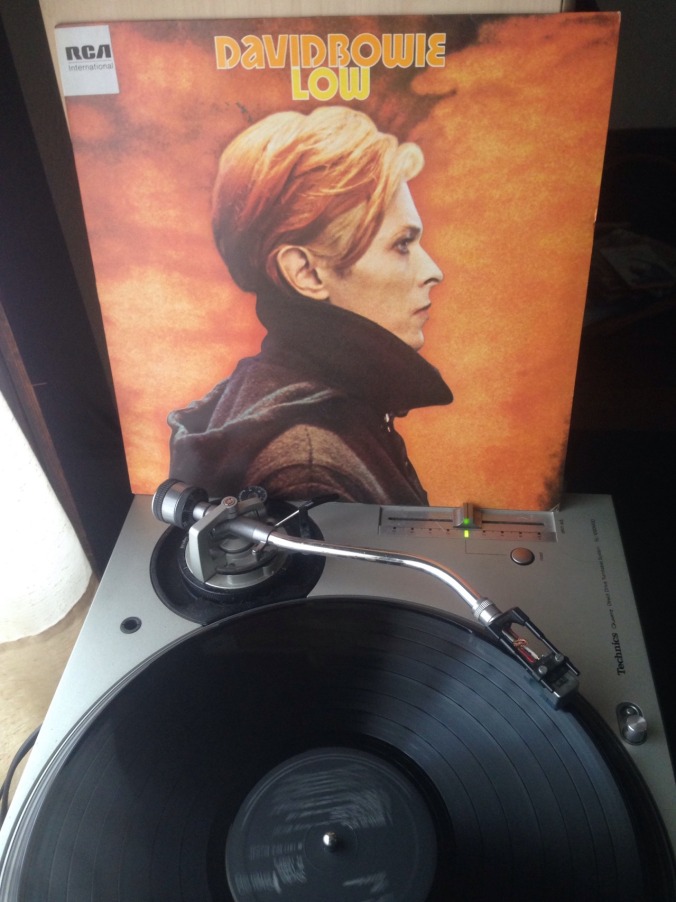The way the story goes, after years of commercial success and a crippling drug addiction, Bowie left L.A. and moved to Berlin to get clean and make weird music with Brian Eno (the three albums would come to be called the Berlin Trilogy).
And in the face of Young Americans and Station to Stations’ plastic soul, Low is entirely unprecedented and off-kilter.
On Low, The Man Who Fell to Earth strips off any pretense of humanity and indulges in the song of his people. Synthesizers beep and blip in jarring patterns, angular guitars stab jaggedly, and Bowie sings multitrackedly with himself, all Bowies singing with an exaggerated vibrato that swells and crescendos in inhuman rhythms (see: “Sound and Vision”).
Brian Eno’s presence is strongly felt, whether in his contributions or in his influence on Bowie. The songs on side one are avant-garde free-for-alls with obtuse arrangements free of the tyranny of the verse-chorus-verse-chorus-bridge-chorus structure, where side two is filled with “more” experimental, mostly voiceless, electronic pieces.
The most notable of these pieces is the eastern-tinged droning “Warzsawa,” with a theme written by a four year old and a vocal segment featuring one hundred and ten David Bowies. There’s also the electronic wash of “Art Decade,” the minimalist staccato pound of “Weeping Wall”, and the ambient “Subterraneans,” all of which were described by Bowie as attempts to show the despair of a post-war Europe (which might explain why my wife asked, “Why’s David Bowie so sad?”).
Combined with the angular chaos of the first side (which, amazingly, was made while he was getting OFF of cocaine), side two creates a record that, while critically acclaimed, was clearly NOT David Bowie as usual. In fact, my old roommate once told me that Low was the only David Bowie album he liked, to which I responded, “then you don’t like David Bowie.”

